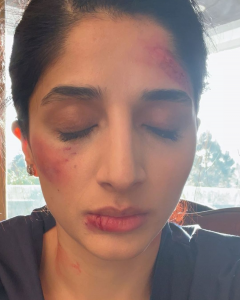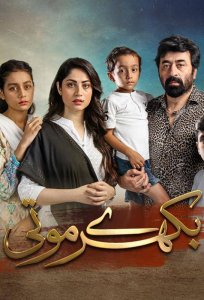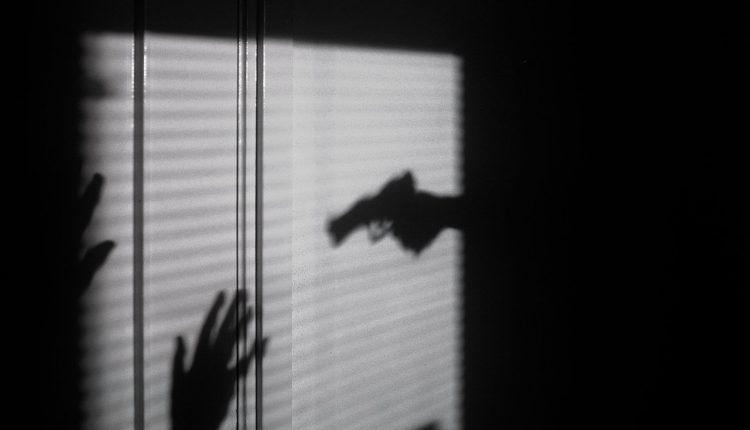The Silent Echo of Domestic Violence in Pakistani Dramas
How Pakistani dramas portray domestic violence and the need for responsible storytelling.
Over the years, Pakistani television dramas have evolved into a platform that not only entertains but also spotlights pressing social issues, including domestic violence. Dramas such as Jaffa on Hum TV, Kaisa Hai Naseeban, and Bikhray Moti on ARY Digital have placed domestic abuse front and center, stirring much-needed conversations around this prevalent issue. However, the way these stories are told varies significantly—while some shows offer a responsible portrayal, others tread the dangerous line of sensationalism.
Jaffa’s Responsible Take on Domestic Violence
Among these dramas, Jaffa stands out for its detailed and thoughtful portrayal of domestic violence. Unlike other shows that rely on shock value, Jaffa manages to delve into the harsh realities of abuse with an eye for nuance. While it does depict disturbing scenes of violence, it’s not without purpose. The drama is careful to highlight the emotional and psychological impacts of abuse, showing the victim’s journey not just as one of suffering, but also of resistance and survival. This depth allows Jaffa to deliver a powerful message: domestic violence isn’t something that can be brushed off, and it’s not a story that ends with silence.

What Jaffa does well is balancing the tension of violence with moments of hope and empowerment, avoiding the trap of glorifying endurance. The show makes it clear that the victim’s struggle isn’t a testament to her strength but a societal failure. Viewers are offered a window into the harsh realities of many women’s lives, but with a focus on resolution and change. It avoids the risk of perpetuating the idea that domestic violence is inevitable or that women should endure it for the sake of family unity.

The Emotional Weight of Udaari
While Jaffa takes a careful approach, other dramas like Udaari have made significant strides in depicting the trauma of abuse but have faced criticism for the emotional burden they place on the audience. Udaari, which boldly tackled child sexual abuse and domestic violence, was a trailblazer in terms of content, showing the dark side of Pakistani society in a way that hadn’t been done before. However, the sheer weight of the subject matter left many viewers feeling emotionally drained. Some critics argued that while Udaari raised awareness, it also opened up deep wounds for survivors of abuse without offering enough respite from the trauma.

This presents an ongoing debate about how much is too much when depicting such sensitive topics. While it is important to show the raw truth, doing so without adequate breaks or moments of healing can have adverse effects, even on viewers who may not have lived through such experiences. Trauma-heavy content like Udaari has prompted calls for better balancing of narrative arcs that, while exposing societal ills, should also offer hope and support.
Sensationalism or Substance?
Some Pakistani dramas have faced backlash for crossing into sensationalism, using domestic violence as a plot device for ratings rather than social change. Kaisa Hai Naseeban, for instance, tells the story of a young woman in an abusive marriage, a plot all too familiar for many Pakistani women. While the drama successfully highlights the pressures that push women to remain in abusive relationships, it falls into the trap of dragging out the abuse for dramatic effect. Multiple episodes focus on the protagonist’s suffering without showing any active steps toward her empowerment or escape. This depiction risks normalizing the idea that abuse is something to be endured, which can be harmful to impressionable viewers.
The drama does eventually reach a conclusion where justice is served, but the prolonged suffering can leave a bitter aftertaste for viewers, many of whom may see their own struggles reflected in the character’s journey. It raises the question: are these portrayals doing enough to encourage women to seek help, or are they merely feeding into the trope of the long-suffering wife?
The Need for Trigger Warnings and Guidance
Given the intensity of these topics, there’s now a growing demand for Pakistani dramas to come with trigger warnings and parental guidance. Sensitive content such as domestic violence, child abuse, and mental health struggles requires more than just responsible storytelling—it needs proper framing. By including trigger warnings, producers can ensure that viewers, particularly survivors of abuse, are prepared for what they’re about to watch and can make informed decisions about whether or not to engage with the content.
Trigger warnings are common in Western media, particularly when dealing with difficult subjects. It’s time for Pakistani television to adopt similar practices, acknowledging the emotional toll such content can take on viewers. Parental guidance is also necessary for ensuring that younger audiences are either shielded from traumatic content or guided through it with care. The reality of domestic violence is not something that should be sensationalized for entertainment; rather, it should be presented in a way that promotes dialogue and offers solutions.
From Suffering to Empowerment
Despite the heavy portrayals, some Pakistani dramas are moving beyond the idea of endurance and focusing on empowerment. Bikhray Moti provides a nuanced look at the long-term impact of domestic violence, particularly on children. Rather than glorifying the woman’s suffering, it explores how violence breaks apart the family unit and leaves scars on the next generation. By shifting the focus away from the act of violence itself and onto the broader consequences, Bikhray Moti offers a fresh perspective on how society can break the cycle of abuse.
Dramas like Meri Guriya have also found success in balancing trauma with justice. The drama, which tackled the sensitive issue of child molestation, not only depicted the horrors of abuse but also ensured that the abuser faced consequences. The focus wasn’t just on the crime but on the process of seeking justice, giving the audience a sense of closure. This type of storytelling is vital in making sure that the focus remains on healing and progress, rather than on the abuse itself.

Challenging Cultural Norms
A significant challenge for Pakistani dramas lies in overcoming deeply ingrained cultural norms. Shows like Muqaddar and Dil Mom Ka Diya often present women as passive figures who endure suffering in the name of family honor or religious obligation. These portrayals, while reflective of the real-life struggles of many women, also reinforce the idea that submission is a woman’s duty, which is a harmful narrative.
However, we are seeing a shift in the landscape. More and more dramas are beginning to challenge these stereotypes, presenting women as strong, independent, and capable of overcoming their struggles. This is a crucial step forward, as television holds immense power in shaping societal attitudes. By portraying women as active agents of change, rather than passive victims, these dramas can play a key role in dismantling harmful cultural norms.
Television’s Role in Change
Pakistani television dramas have the power to influence change, but they must be wielded with care. The issue of domestic violence is far too serious to be reduced to a mere plot device for drama and ratings. Instead, it requires thoughtful, nuanced storytelling that offers solutions, promotes dialogue, and encourages viewers to question societal norms.
As the landscape of Pakistani television continues to evolve, we must demand more from the content creators. Trigger warnings and parental guidance are just the beginning; what we need are stories that don’t just portray suffering but also offer hope, empowerment, and tangible solutions for those trapped in cycles of abuse. Dramas like Jaffa are proof that it can be done with care, and it’s time for more shows to follow suit.
The question now is: where do we go from here? Will Pakistani dramas continue to use domestic violence as a shock factor, or will they evolve into a medium that promotes healing and justice? The future of Pakistani television depends on how we answer that question.

